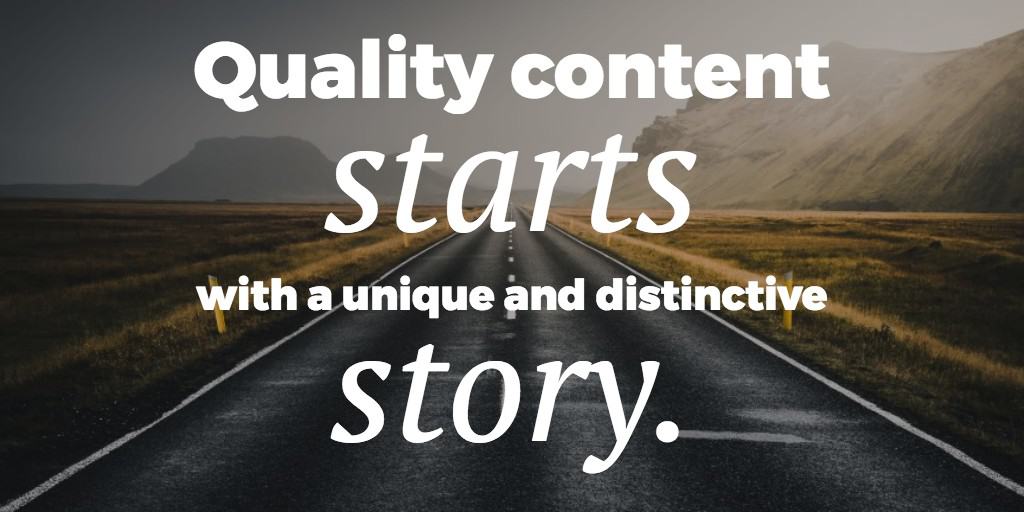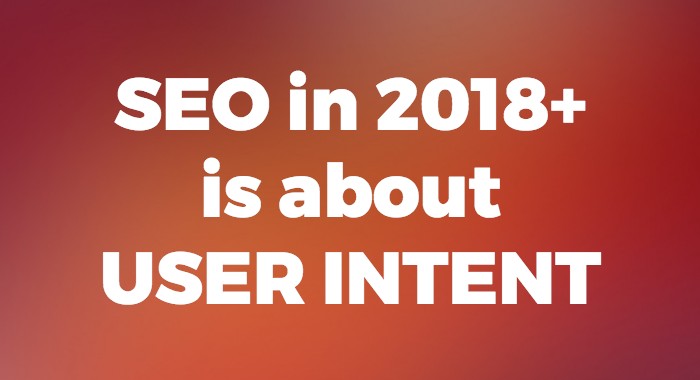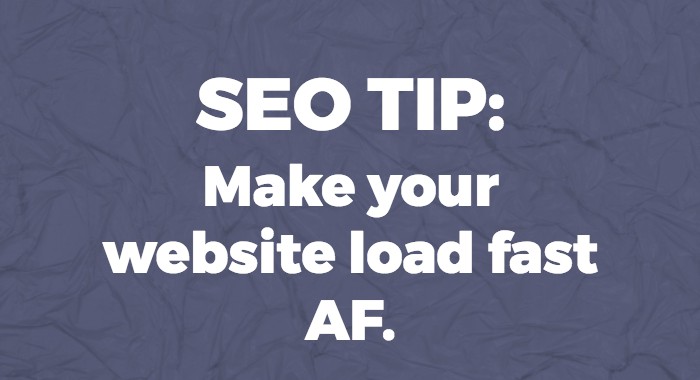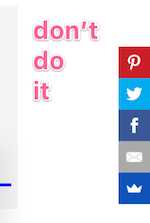Grant Sabatier is a millionaire, legendary SEO expert, blogger, podcaster, and influencer over at Millennial Money.
Aside from an incredible backstory, Grant also offers a fantastic point of view on starting and growing businesses, producing killer blog content (You’re going to walk away with a TON of takeaways from this chat), etc.
We’re going to cover:
- Reader question – What are the beginning SEO steps when you first start out?
- If I want an SEO makeover, where should I focus my time?
- How Grant charged his first freelance client $500–and his second $50,000
- His “Insane Traffic Formula” (soooo good)
- Massive SEO strategies 🙂
Seriously, Grant is amazing to take the time to share this with us, and I for one am incredibly thankful. You’re going to enjoy this one 🙂
Listen to my episode with Grant Sabatier from Millennial Money
or listen on Apple Podcasts \ Google PodcastsShow notes and referenced links
- Grant’s megapost on SEO
- Mobile site tool – MAKE IT FAST
- Screaming Frog – crawl website, xml sitemap, finding errors
- AWR cloud for keyword ranking – (I use KWFinder)
- 6 fairly easy SEO Audit Tips.
How Grant went from one $500 project straight to a $50,000 project in 2 months.
“Often enough in life, how much money you make doesn’t depend on how hard you work…or how often you show up…or how busy you are…
What matters is one key thing: perceived value.”
2 different people will pay 2 different amounts for the same exact product or service, depending on how much they perceive it to be worth (and how much they might need it!)
Another small note in Grant’s story that stood out to me:
- He hustled for his first client, regardless of the Billings ($500)
- He overdelivered, then asked the client if he could use them as a reference.
- He took his killer reference and pitched (successfully) $50k clients.
That’s a bit insane, but demonstrates the INCREDIBLE power of a good referral.
(Hint: It’s why I also ask every one of my podcast guests ‘Who else do you think I should interview?’ I also use them as a referral for reaching out to more potential guests)
The “Insane Traffic” Formula

After engaging with a ton of bloggers over the years, Grant eventually realized many of them were starting in the wrong place.
1 – Quality
In an effort not to be entirely too cliche with the whole “YoU NeEd QuAlItY CoNtEnT!”!”! Chat (because let’s face it, you’ve heard that enough)…let’s just lay out this:
The following traits generally affect the “quality” of your blog content:
- Well-written – Are there typos or poor grammar? Is the prose at least somewhat readable or conversational?
- A+ Formatting – Are there enough line breaks, images, and sub-headers to make it easy to digest and/or skim?
- Enticing but succinct intros – Do you appropriately lay out what your article is about, but provide enough teasing to hook audiences in? (Without which they’d never scroll and get your point)
- Well-researched – Are your facts straight? Are your examples/metaphors relevant?
- A unique take – Do you present any original ideas or theories, or is everything basically found elsewhere on the internet?
- Something to say – Do you infuse passion, opinions, or ideals into the content? Do you have something to say?
- Findable and shareable – Are there share buttons? Is it SEO optimized? Pinterest optimized? Whatever?
- Fit for your audience – Will it connect with your target reader? Will attract a certain target reader?
- Something people want – Be honest, does anybody want to read this? (If so, who and where to they hang out online? #marketing)
2 – Authenticity
For bloggers specifically, “if you have the same story as everyone else, or nothing distinctive or unique to say….that’s ok…but you’re going to have to work a lot harder.”
Quality content based on a unique, distinctive story.
Read that again.

You need to be open. Be authentic. Tell YOUR story in a way that nobody else can. Audiences are attracted to that.
Your audience wants to know you’re a human, that’s how they connect with you.
3 – Intent
“In order to stick with it, you kinda have to know WHY you’re doing it.”
It’s great that you want to make money from your blog. We all do. But there MUST be a least some form of additional intention and/or purpose behind the content you produce.
Not only that, but you should clue your audience in to your intentions as well.
(For one, it’s authentic and builds trust!)
For two, people can generally sniff out folks who are just in it to make money. ESPECIALLY in the long-term.
Like we said, it’s more than fine to desire blog revenues, as long as there’s something else there too and you’re crystal clear with your audience about your intention!
Be known as THAT kind of blogger, speaking of which…
4 – Brand
It starts with a name…and then affects every other aspect of your entire business 🙂
Your name? “Have something memorable that can stick with people.”
Other aspects of your brand?
- Do all of your social images/pins have the same look, feel, and colors on them? (Not a deal-breaker if not, but a part of brand for sure).
- Does all the content you produce follow the same voice? Tone? That’s brand too.
- Do you have a good story? What’s your about page like? Will people remember it? That “about you” story tends to pop up all the time in marketing AND your content. Make it a good one.
- Do stand out? Is your blog distinctive or memorable in any way? That’s one thing DYEB has thankfully had from day 1 – A pretty sticky name and logo. People tend to associate it quite quickly.
5 – SEO
Um, see below. There’s a whole section for this.
6 – Media
Grant put it best…
“It was like I spent the first several years putting together a fire…but ONLY the kindle.”
That means all the previous steps, including quality content, brand, and SEO.
He put a TON of time into all the steps, gradually building his kindle…and once the first few media opportunities came knocking, his brand was READY to ignite
(Queue John Lee Dumas voice…)
The lesson? Focus on everything else FIRST, so that when media opportunities come, all the other pieces of huge growth are already in place.
Also…
Doing manual outreach to gain media exposure is extremely difficult. Like, really really difficult.
Better to focus on building high-quality content that turns heads, building up killer SEO to grow your following, and eventually you will be presented opportunities for greater exposure.
(As Grant pointed out, a killer personal story also goes a long way. Media outlets are looking for good stories that drive clicks. Give them one and they’ll love you for it.)
“You gotta think about the long game if you want to take it to the next level.”
First, the context…
Grant made a conscious choice to slow down on the blog in late 2017 while he took a book deal (and wrote the book, which I can only imagine is tough work).
This likely cost him a lot of blog growth, as this was when his media opportunities were really starting to take off.
The trade-off?
Hitting long-term goals.
He probably could’ve capitalized better on the media exposure, grew his following and thus blog revenues, but that wasn’t particularly in tune with his long-term goals (To be a money personality and publish awesome books).
Even now, Grant’s building out a long-term plan for his book launch…
Though that’s still several months away, he’s begun building an SEO strategy targeting several book keywords, etc, so that when his book DOES drop, he can insert it into his content and hopefully crush the book launch.
Smart.
What are your long-term goals?
How are you setting yourself up for future success, even if it means sacrificing a bit today?
Food for thought.

Grant’s SEO tips
If you were in Online Impact taking my SEO course, you’d be SICK of me saying “user intent” already, but it’s uber important to think about.
In fact, that was Grant’s very first SEO tip:
You MUST know and shape your content around User Intent
“It doesn’t matter how much research you do if you can’t get in to the mid of the reader/user.”
For example…
- Who do I want to see this?
- What do they care about?
- What do they NEED to learn about?
- Does my content satisfy this in an engaging way?
Google’s running “Rankbrain” now, which basically just means this: Their algorithm is smarter than ever, and is gunning for discovering actual user intent.
Next, nail down User Experience
- How fast does your page load? (See below for tips)
- Do you present the content in such a way that’s SUPER easy to dive into and read?
Google is asking…
- How long did the Googler spend on the page? (Average time on page)
- Did they not find what they were looking for? (Bounce rate)
- How many Googlers are clicking through your particular search results? (How is your Headline [i.e. title] and description copywriting?)
- Are you making the content accessible by people who prefer video and audio?
Don’t get hung up on a keyword strategy. Go user-first, and you’ll rank so much better than just having a keyword-first strategy.
(FYI, Deacon Hayes, who is also a superb SEO guru, said the exact same thing in this interview)

Tools for page speed, while we’re talking about it.
- W3 Total Cache – Free WP plugin (premium available)
- WP Super Cash – Free WP plugin
- PageSpeed Insights – Analyzes your website, desktop, mobile
- GTmetrix | Website Speed and Performance Optimization – Analyzes your website, including speed
- Smush – Free WP plugin for image compression
- Compressor.io – Browser-based image compression (what I use)
Please please please check your site speed and try to optimize a bit!
Also, I’d seriously reconsider using tools like Thrive, Sumo, Opt-in monster, etc…..that show pop-ups on mobile (usually you can turn this feature off in the settings), AND turn off share numbers!

Play to your SEO strengths
If you run a dog grooming site, and publish ONE blog post on Student Loans, you’re likelihood of ranking for student loan keywords is…small.
“Semantic relevancy” is the Google term Grant mentioned.
Basically, when reviewing any given post you’ve written, Google might ask “is this topic related to the blog topic?”
As soon as Grant and I recorded this podcast, I go SUPER excited about this topic, and already wrote on this in great depth here: SEO Category Pages – Why they’re important and how to optimize them.
The most powerful 2 SEO tips Grant dropped:
If you want the full details on all of this, you’re going to have to listen to the podcast. Sorry.
BUT…
Please allow me to sum up the following tips, as I think they are super duper important for bloggers looking to capitalize on organic search:
1 – Be strategic
If you’re really looking to rank well in Google, it needs to be for a purpose, and your SEO plan should be well thought-out and long-term.
You should be strategic in your efforts.
Simply writing a blog post about something you’re fired up about….THEN going through some basic Yoast optimization, is fine.
It’s fine, but it’s not optimal for huge organic traffic.
In order to truly capitalize on Google traffic, which could arguably be the BEST kind of traffic for most niches..
…you need to plan your keywords and content for the long-term.
- What are my overall blog/business goals?
- What role can SEO play for that 9 months from now?
- How can I shape my content (ALL my content, not just one post) in order to set myself up to benefit most from that traffic 9 months from now?
2 – User intent
SEO is less about keywords, it’s more about getting the heads of Googlers. Click to Tweet!
Google’s only strategy for their search engine is providing people exactly what they need from a search query. Rankbrain is constantly trying to discover and fine-tune user intent.
For your purposes…
When trying to rank for a specific keyword or category/topic…ask yourself “Does this content satisfy the user intent of the search query?”
If not, you won’t rank.
3 – Backlinks
Of course, they’re crucial.
4 – On-Page SEO Stuff.
There is SO MUCH MORE than simply gunning for green lights in Yoast!
Unrelated to SEO, but “writing in a muscle.”
Grant said it took him writing over 100,000 words until he was finally able to STOP focusing on the actual act of writing (typing, spelling, structure, voice, style, etc)….and focus on the content.
This is a huge point, especially for bloggers in their first year:
When you first start out, your blogging will likely stink. Or if not stink, it won’t be easy, and it definitely won’t be perfect.
Writing is a muscle, and muscles like to work out. Write every day. – Click to Tweet!
Jillian from Montana Money Adventures routinely gives this advice as well. Write every day, even if you don’t publish!
Get to 100,000 words written as quick as humanly possible, so you can focus more on the content and message, and less about the writing.
Please comment below with your thoughts from this episode!
I’d LOVE to hear what SEO strategies you’re working on or adding to your homework list 🙂
Further SEO reading:

